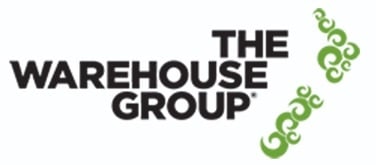
Be less technical to become more data-driven.
“When it comes to deploying advanced analytics, marketers make the most valuable and difficult contribution, more so than analysts, data scientists and other geeks”.
A statement like that might ruffle a few analytical feathers but this was the topic of conversation at the recent Marketing Association course “Analytics for Marketers”. We were covering a module called “Beyond the Basics”. Attendees come to these courses with varying expectations and for some getting “beyond the basics” might have meant a closer look at advanced statistical techniques, machine learning and maybe shortcuts to mastering SQL or coding in R. After all, data science has been described as the “” and we've heard senior executives announce very proudly "yeah we do data science”. With all this attention you might be forgiven for an inclination to emulate the skills sets of people in these “technical” positions.
![]() Whether it’s a data scientist or a decent analyst, CV's can sound impressive and as the technical jargon spews forth, as a marketer slightly outside your comfort zone, you'd be forgiven for a sense of intellectual intimidation. However, Datamine challenged that position and it came as a surprise to marketers in the room.
Whether it’s a data scientist or a decent analyst, CV's can sound impressive and as the technical jargon spews forth, as a marketer slightly outside your comfort zone, you'd be forgiven for a sense of intellectual intimidation. However, Datamine challenged that position and it came as a surprise to marketers in the room.
The skill gap we see around town is not a purely technical one. Technical execution, certainly in the current day-to-day context of NZ businesses, is not the hard bit or the part businesses are getting wrong as they wrestle to extract value from data. Deciding on what gets done and how (in a general sense) so that analytical endeavours deliver to organisational goals, injecting commercial acumen into the analytics process, managing stakeholders, and getting people on board so that something is actually implemented is the hard bit. It takes intelligence, abstract thinking, perseverance and energy. And for marketers to be data driven, they must take on this role (or aspects of it).
So contrary to most positions in the room, it’s marketers that become one of the most important parts of the analytics team and it's this contribution that's currently missing. When marketers do their bit well, it will be the part that unlocks the value of data within an organisation (or at least a significant contributor to this end in a marketing context).
As a group we talked about approaching a project that required the building of predictive models and how we need marketers who can inject pragmatic, intelligent direction into the modelling process. It’s less about building a model in R and much more about:
- Knowing enough to seek explanatory power over predictiveness in models
- Navigating the organisation through the process of defining what its actually trying to predict (seldom is this trivial)
- Choosing which variables should be up-weighted to reflect commercial realities and…
- Choosing appropriate prediction windows that actually allow marketing teams to intervene or engage in a timely manner
This is where the knowledge gap is. On the whole most marketers aren’t there yet and conversely, neither are many of our analysts and technical teams. If we take a step back it's the downstream effect of not developing the right environment that allows a business to activate analytics.
Increasingly businesses are hiring in “translation layer” roles – someone who can grasp the technical side (but isn’t an uber-geek) but also has a firm grounding in commercial practicalities. Such skill sets are hard to find so marketers with data driven ambitions should focus on being part of this layer (especially where a business lacks the size to justify this position being carved out).
Arguably this is where the greatest amount of value will be created for an organisation. Some might say this is axiomatic but this gap in capability is the norm rather than exception across businesses. Uncovering why this is the case is good fodder for continuing debate and discussion in this area. For more information about data-driven marketing, download the Datamine Guide to Marketing Automation for free below.















































